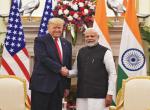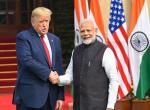New Delhi must react firmly to beijing’s provocative stance on Kashmir
We must understand the implications of China’s denial of visa to General Jaswal, heading India’s Northern Command, for defence talks in Beijing on the ground that he came from the “sensitive location of Jammu and Kashmir” and “people from this part of the world come with a different kind of visa”.
China began giving stapled visas on the Indian passports of Kashmir residents to make the point that it does not recognize J&K as an integral part of India. Now it has gone a step further by denying a visa to the Indian Army General in charge of J&K. The implication here is that those associated directly with Indian rule in J&K are not politically acceptable to China for visits even if they are travelling for purposes agreed to at governmental level. This would suggest that the Chinese now consider India’s presence in J&K as lacking in legitimacy. Even the legality of India’s “control” over J&K is being questioned.
Until now China’s territorial dispute with us has not gone beyond its claim to Aksai Chin in Ladakh. China has not hitherto directly contested the territorial status of J&K bilaterally, treating it as an India-Pakistan dispute in which it has traditionally leaned towards Pakistan’s position openly or quietly. Its recent steps to question India’s legal status in J&K- referred to tellingly as ”this part of the world”- in bilateral dealings constitute a new and grave provocation.
While being squeamish on J&K lest it gives cognizance to Indian sovereignty over the territory, China deals with Pakistan Occupied Kashmir(POK) area as if Pakistan’s sovereignty there is undisputed. It is involved in massive road building and hydel projects, disregarding Indian objections. The Chinese have confirmed the New York Times report on the presence of People’s Liberation Army(PLA) personnel in POK, but claim flood relief as purpose. With energy security and the unrest in Sinkiang in view, China has begun to look at this territory illegally occupied by Pakistan with even greater strategic interest than before. Uighur separatists can be kept under a watchful eye from there, while through Gwadar oil and gas from the Gulf can be transported to Sinkiang. China can link up its interests in Afghanistan too through this contiguous area. China would therefore want Pakistan’s hold over this region consolidated economically and legally.
While massive infrastructure projects help achieve the former goal, questioning and contesting India’s legal status in J&K serves the latter objective as it puts India on the defensive and erodes its locus standii in challenging Pakistan’s illegal possession of POK. With its new stakes, China aims to become an inescapable factor in any India-Pakistan final settlement of the Kashmir issue, with the objective, in such an eventuality, of denying India any future role in Pakistani held territory. Moreover, by entrenching itself in this region firmly, China would want to be able to protect its strategic investment in it, should the Pakistani state slide increasingly towards failure.
China’s visa denial to General Jaswal exposes other anomalies. It gave visas last year to the Leh Corps Commander and the present Army Chief then in charge of the Eastern Sector covering Arunachal Pradesh. Can it be that J&K is a more “sensitive location” for Beijing than Arunachal Pradesh? Further, how does China reconcile its questioning of India’s legal authority over J&K with prolonged border talks with India that include the western sector? To enhance mutual trust and confidence, India and China are increasing military contacts, with India hoping to soften PLA’s antagonism. The defence dialogue for which General Jaiswal was travelling to Beijing is intended to serve this objective. How can confidence at military level be built if dialogue between those on both sides in charge of the most sensitive areas is impeded?
Our response to Chinese attacks on our sovereignty must not be confined to temporary suspension of defence visits, as China will gladly pay that price for the space it is creating for itself to pursue its strategic interests in the original J&K state at India’s cost. We must project Chinese activity in POK as a security threat, in particular to our control over Leh and Siachen. We should consider issuing stapled visas to Tibetans travelling on Chinese passports to underline that we had recognized a genuinely autonomous Tibet as part of China, not a militarized Tibet threatening our security and serving to make addditional territorial demands on us. Prime Minister’s public remark about Beijing exploiting India’s “soft underbelly” in Kashmir and Pakistan to keep India in “low level equilibruim” indicates a new, refreshing realism about China, but a tangible response is needed.
China engages us, but has created room for itself to openly contain us because of our appeasing attitude. While we engage China we too should create space for ourselves to impose costs on it for its hostile policies against us.
The writer is a former foreign secretary.
--------------------------------------------
Published in Times of India, Published Date : September 9, 2010









Post new comment